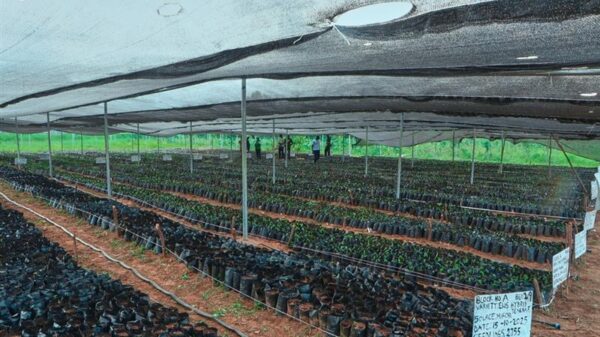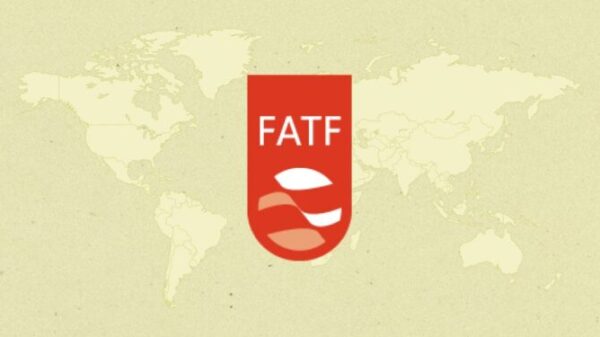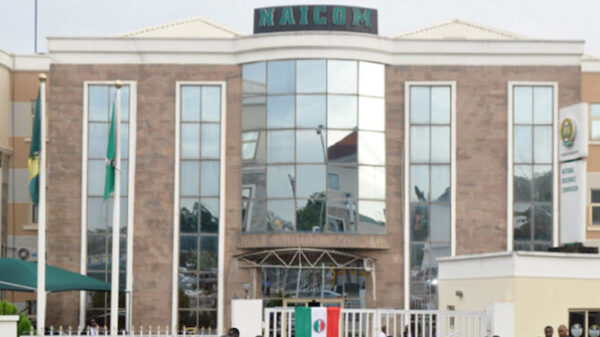Nigerians continue to hold a massive amount of cash outside the formal banking system, with figures reaching ₦4.47 trillion in September 2025, according to the Central Bank of Nigeria (CBN). This comes even as the total money supply in the economy contracted for the first time in months, highlighting ongoing challenges in monetary policy transmission and public trust in banks.
Money Supply Contracts, but Cash Hoarding Persists
The CBN’s Money and Credit Statistics Report shows that broad money supply (M3) fell from ₦119.69 trillion in August to ₦117.78 trillion in September, representing a ₦1.91 trillion decline or 1.6% month-on-month.
Despite this contraction, cash outside the banking sector actually rose by ₦14.7 billion, or 0.3%, during the same period. This contrast underscores Nigerians’ strong preference for liquidity in physical form, even when financial conditions tighten.
On a yearly basis, the total money supply grew by 7.6%, from ₦109.41 trillion in September 2024. However, cash held outside banks expanded even faster—by 11.2%, up from ₦4.02 trillion a year earlier. This widening divergence reflects a growing tendency among households and businesses to operate outside the formal financial system.
90% of Nigeria’s Cash Held Outside Banks
Total currency in circulation as of September 2025 stood at ₦4.95 trillion, according to CBN data. Of this amount, ₦4.47 trillion, or 90.2%, was physically held by individuals and businesses outside bank vaults. This leaves only 9.8% within the formal banking system.
Although this ratio has narrowed slightly compared to September 2024’s 93.2%, the absolute volume of cash hoarded has surged by nearly ₦450 billion in one year. The data show that Nigerians’ reliance on physical money remains deeply entrenched despite the government’s drive toward a cashless economy.
Why Nigerians Still Prefer Holding Cash
Economists suggest that the persistence of cash hoarding reflects both structural and behavioural weaknesses in Nigeria’s financial ecosystem.
Several factors contribute to this trend, including:
-
High transaction costs and charges on digital transfers.
-
Distrust of the banking sector following past liquidity crises and regulatory actions.
-
Limited access to financial services in rural and semi-urban areas.
-
The dominance of the informal sector, where cash remains the main medium of exchange.
These challenges have slowed progress toward financial inclusion and weakened the effectiveness of monetary policy adjustments.
Cash Hoarding Trends in 2025
The CBN’s monthly breakdown reveals fluctuations but a consistent pattern of high cash retention throughout 2025.
-
January: ₦4.74 trillion (90.4% of total currency in circulation).
-
February: Declined to ₦4.52 trillion (89.7%).
-
March: Rose again to ₦4.60 trillion.
-
April: Slight drop to ₦4.57 trillion.
-
May: Peaked at ₦4.63 trillion, the highest so far in 2025.
-
June: Fell to ₦4.49 trillion.
-
August: Dropped to ₦4.45 trillion.
-
September: Climbed back to ₦4.47 trillion.
Despite these fluctuations, the proportion of currency held outside banks has remained above 90%, showing that liquidity preferences remain largely unaffected by short-term policy moves.
Impact of CBN’s Policy Adjustments
The latest data come a month after the Central Bank of Nigeria reduced the Monetary Policy Rate (MPR) by 50 basis points to 27.0%, marking its first rate cut in five years. While this move aimed to reduce borrowing costs and stimulate credit growth, it was accompanied by tight liquidity measures.
The Cash Reserve Requirement (CRR) for commercial banks was raised to 45%, while a 75% reserve ratio was imposed on non-TSA public sector deposits. These measures effectively restricted banks’ ability to lend, limiting the flow of funds into the economy despite lower interest rates.
As a result, many households and small businesses have opted to keep money in cash form—accessible, unregulated, and liquid—rather than as deposits that offer limited returns and face withdrawal restrictions.
Economic Implications
Analysts warn that the continued rise in cash held outside banks could undermine the effectiveness of the CBN’s monetary policy. When most of the money in circulation remains outside the formal banking system, the central bank’s ability to control inflation, manage interest rates, and direct credit becomes weaker.
Moreover, high levels of cash hoarding encourage tax evasion, informal trading, and inefficient capital allocation, all of which can slow economic growth. It also increases security risks and operational costs for both individuals and businesses handling large sums of physical money.
The Bottom Line
Despite the CBN’s efforts to promote digital payments and financial inclusion, Nigerians’ preference for cash remains resilient. The data for September 2025 highlight that over ₦4.47 trillion—more than 90% of all cash in circulation—is still held outside banks.
Unless structural reforms address banking trust issues, transaction costs, and digital infrastructure gaps, the country’s cash dependency is likely to persist, limiting the full impact of monetary and fiscal policy measures.












































